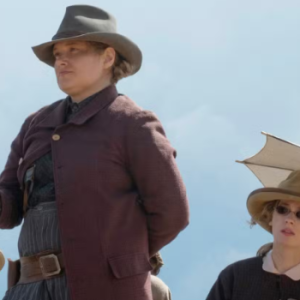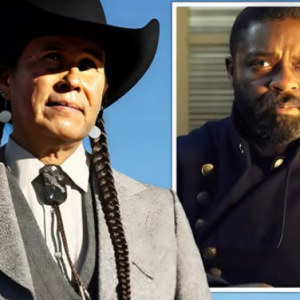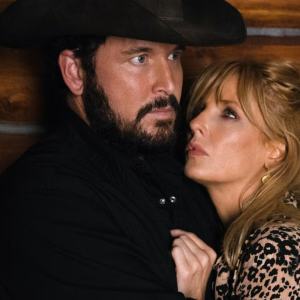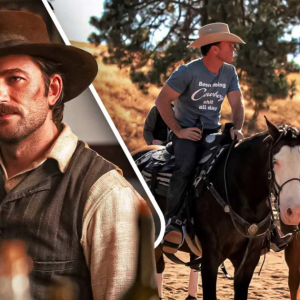The acclaimed “Yellowstone” universe, a sprawling epic chronicling the multi-generational fight of the Dutton family for their Montana ranch, found a new anchor in its prequel series, “1923.” At the heart of this compelling narrative are Hollywood titans Harrison Ford and Helen Mirren, whose powerful performances as Jacob and Cara Dutton have captivated audiences and critics alike. Beyond their undeniable on-screen chemistry, the mutual respect between the two actors, particularly highlighted by Ford’s recent remarks, underscores the profound impact of their collaboration on this gritty historical drama.
During an appearance on The Late Show with Stephen Colbert, the 80-year-old Harrison Ford spoke glowingly of his 77-year-old co-star, Helen Mirren, with whom he shares the screen in “1923.” Ford candidly revealed that Mirren’s involvement was a significant draw for him to join the Paramount Network production. Their collaboration isn’t new; the pair previously starred together in the 1986 film “The Mosquito Coast.” Recalling that earlier period, Colbert humorously interjected, presenting an old on-set photo and remarking, “Sexy and still sexy,” to which Ford, grinning, unequivocally agreed, “She’s still sexy,” eliciting a wave of audience cheers. The lighthearted exchange continued as Colbert provocatively inquired about their on-screen intimacy, sharing his own memorable encounter with Mirren, who famously “planted a wet one” on him during a previous show appearance. Ford concurred with Colbert’s assessment of Mirren as “hot” and “out there,” before shifting to a more professional appraisal of her formidable talent. “It’s been remarkable to watch her,” Ford told Colbert, emphasizing Mirren’s commitment to the physically demanding roles in “1923.” “There’s a lot of physical action, and she just jumps right in and does stuff you don’t imagine Helen Mirren would do. Dame Helen Mirren.”
This dedication to their roles is vital, as “1923” plunges viewers into a tumultuous period for the Dutton family and the American West. The series is set during a time when, as a plot synopsis from Paramount+ details, “pandemics, historic drought, the end of Prohibition and the Great Depression all plague the mountain west, and the Duttons who call it home.” It serves as a crucial link in the “Yellowstone” lineage, following the narrative established by the 2021 prequel “1883,” which starred real-life couple Tim McGraw and Faith Hill as James and Margaret Dutton, depicting their arduous journey to Montana and the founding of the ranch.
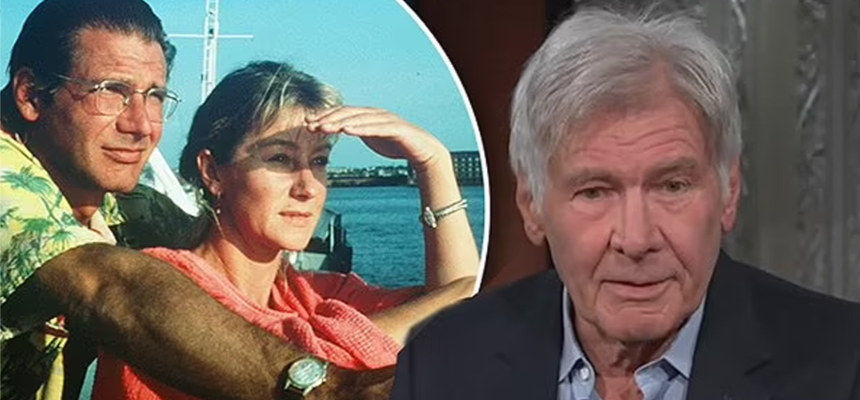
For Ford and Mirren, their partnership on “1923” marks a significant evolution from their dynamic on “The Mosquito Coast” nearly four decades prior. In an interview with The Times, Mirren reflected on this change: “The relationship was obviously very, very different then because Harrison was already an enormous movie star and I was a theatre actress out of London and nobody had heard of me.” She acknowledged the shift in their professional standing, adding, “Now our relationship is very different because I’ve sort of caught up with him. Well, I’ll never catch up with him completely but I’m a little bit closer than I was.” Ford, with characteristic bluntness, dismissed any notion of Mirren still being intimidated by him, stating simply, “No, I think she’s over that.” This matured professional rapport translates into a deeply resonant portrayal of Jacob and Cara Dutton, the stoic, resilient patriarch and matriarch fighting tooth and nail to preserve their family’s legacy amidst unrelenting adversity.
The narrative of “1923” is multifaceted, intricately weaving together several compelling storylines that define the Dutton family’s struggle. Jacob Dutton, portrayed with rugged determination by Ford, embodies the unwavering spirit of the American rancher, fiercely defending his vast lands from encroaching sheep herders, cattle rustlers, and the relentless march of modernity. Cara Dutton, brought to life with profound emotional depth by Mirren, serves as the family’s steadfast matriarch, her wisdom, strength, and unwavering support proving indispensable in times of crisis. Their love story, forged through decades of shared hardship, is a powerful undercurrent throughout the series, demonstrating that even in the harshest of environments, genuine connection can endure.
Beyond the immediate threats to the ranch, “1923” explores the broader historical context of the era. The devastating impact of drought and locust plagues pushes the ranch to the brink, mirroring the widespread environmental challenges of the early 20th century. The onset of the Great Depression further complicates matters, as economic hardship creates new pressures and opportunities for unscrupulous figures to exploit vulnerable landowners. These external forces are personified by new antagonists such as Banner Creighton, a ruthless sheep herder whose escalating feud with Jacob Dutton culminates in brutal violence, and later, the enigmatic and malevolent Donald Whitfield, a wealthy businessman who sees the Duttons’ struggle as an opportunity to seize their land for its valuable mining resources. Their presence underscores the constant, existential threats that have plagued the Dutton family for generations, a theme central to the entire “Yellowstone” saga.
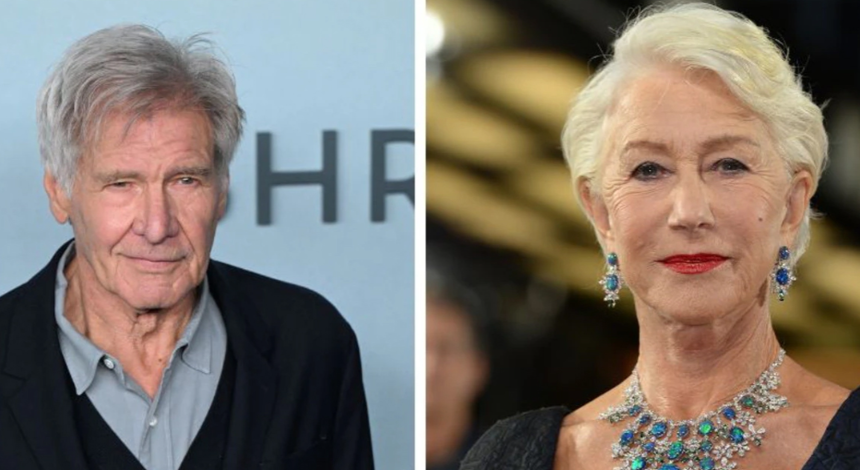
Crucially, “1923” also expands the Dutton family tree by introducing Spencer Dutton, Jacob’s nephew, expertly portrayed by Brandon Sklenar. A veteran of World War I, Spencer is haunted by the traumas of battle, finding solace and a semblance of purpose in hunting big game across Africa. His storyline is a powerful exploration of post-traumatic stress and the universal quest for belonging. However, a desperate plea from Cara compels him to embark on a perilous, continent-spanning journey back to Montana, a journey complicated by shipwrecks, quarantines, and the sheer vastness of distance. Along the way, he encounters and falls in love with Alexandra, an adventurous British woman portrayed by Julia Schlaepfer, whose decision to abandon her privileged life to join Spencer on his arduous return further enriches the narrative with themes of love, sacrifice, and destiny. Spencer’s return becomes the Duttons’ ultimate hope for the future, symbolizing the next generation’s fight to reclaim and defend their ancestral land.
Parallel to the Duttons’ struggle, the series bravely delves into the harrowing experiences of Native American communities during this period through the character of Teonna Rainwater, played with raw power by Aminah Nieves. Her storyline shines a light on the brutal realities of government-mandated boarding schools, designed to forcibly assimilate Indigenous children and strip them of their culture. Teonna’s courageous escape from an abusive institution and her subsequent flight from relentless pursuers highlight the systemic injustices faced by Native Americans, directly connecting to the complex history of land ownership and sovereignty that underpins the entire “Yellowstone” universe. Her resilience and defiance resonate deeply, making her an unforgettable figure in this historical tableau.
“1923” masterfully combines these disparate narrative threads to create a rich tapestry of American history, family legacy, and the enduring battle for survival. It not only fills a critical gap in the “Yellowstone” timeline, bridging the gap between the initial settlement in “1883” and the modern-day struggles depicted in “Yellowstone,” but also stands as a compelling drama in its own right. The series explores themes of colonialism, the relentless pursuit of power, and the profound, often bloody, love for one’s land and family. Through the exceptional performances of Harrison Ford and Helen Mirren, alongside a talented ensemble cast, “1923” solidifies its place as an essential chapter in the epic saga of the Duttons, reaffirming that the fight for their legacy is one that transcends generations, fought with courage, sacrifice, and an unyielding will to endure.

